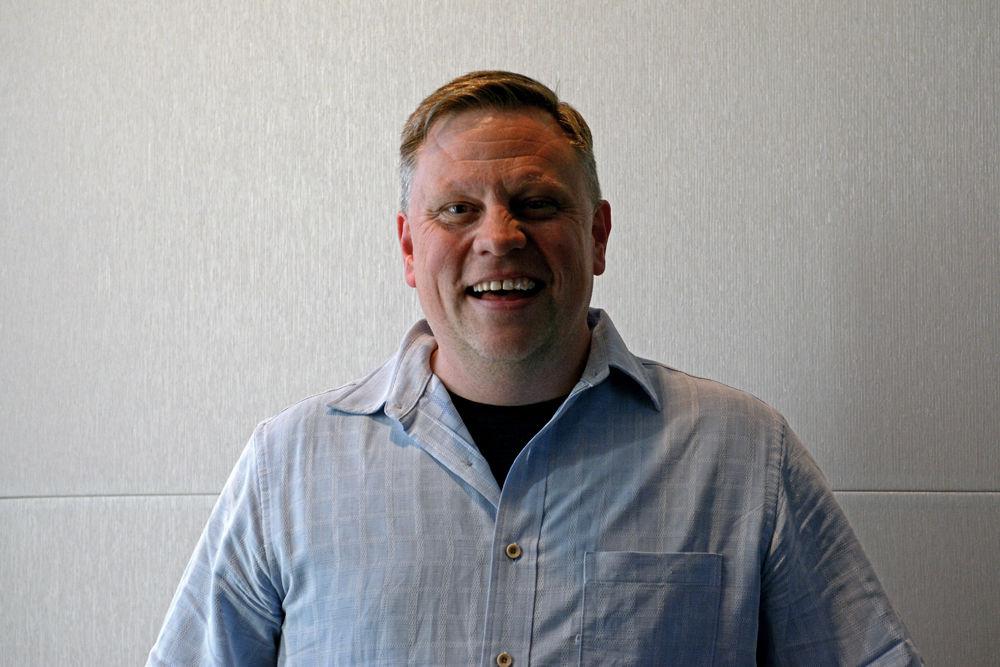Each spring, the NC State GLBT Center puts on the Week of Action, which is centered on the Transgender Day of Visibility. The week is filled with events that allow students to engage in intersectional social justice. Events throughout the week include Take Back the Night, a clothing swap with an emphasis on gender-affirming clothing, and a tour of Talley Student Union’s rooftop garden, the Green Roof. This year’s keynote speaker was Josh Buford, a queer archivist and historian of the Invisible Histories Project, a group that works to preserve LGBTQ history in the American South. On Monday, Apr. 1 Buford presented his talk, “Get off Your Ass: A Look at Radical Queer Activism of the Late 20th Century.”
According to Andy DeRoin, the program coordinator of the GLBT center, this year’s Week of Action has a strong focus on sustainability. They spoke about the importance of the week’s programming.
“I think our main goal with the Week of Action is find your niche,” DeRoin said. “Everyone’s got something that they’re drawn to. Let’s find that thing and connect you to the resources and communities who are doing advocacy and action in those areas. Maybe that will inspire you.”
Buford’s speech was the first event in the Week of Action. His talk focused around on-going issues in the LGBTQ community. The first problem Buford identified was that queer people do not have access to their own history. He mentioned that only four classes on queer history are taught in the North Carolina college system. The second problem Buford addressed through his speech was the un-radicalized, mainstream approach to assimilating the LGBTQ community.
“It is difficult to be radical and queer in the gay community because you’re always pissing on people’s good time,” Buford said. “Because everyone is so sure of themselves because ‘this is what we’re supposed to be doing’ and ‘it gets better’ and ‘love is love’ and that is nonsense.”
According to Buford, many groups have tried to assimilate into the mainstream throughout American history, like transgender people and Native Americans, but it has never worked because it requires one to obliterate their identity. That’s why Buford pushes for liberation, not equality.
“Equality requires a cognitive dissonance. It requires you to force others to wait while you’re in the process of getting what you need,” Buford said, “What you’re saying is that there are people who are less important than you. This is what we have said to trans people and queer people of color from the beginning. We’ll get this thing, but you’re a little ‘difficult’, so we’ll circle back.”
Buford criticized modern activist groups, like the Human Rights Campaign (HRC) who he believes are attempting to sanitize and homogenate the queer community. He stated that the focus on gay marriage over other issues like transgender rights, healthcare, and helping homeless LGBTQ youth has its roots in capitalism. He argued that it only benefits the wealthy members of the community and doesn’t work to fight the issues faced by the majority of the LGBTQ community. To contrast HRC, Buford spoke about many groups throughout U.S. history who have worked for true liberation including Queercore/Homocore, Street Transgender Action Revolutionaries (STAR), Gay Shame, and more.
“Radical liberation politics are not gone, it’s just that we’re the ones always upsetting the people who wanted to make things normal,” Buford said. “But what if you don’t want to be normal? What if you can’t be normal? What if you’re not assimilable?”
In order to attack this issue, Buford is pushing back. His work focuses on trying to give queer people their history back.
“If you can imagine the amazing stuff that was happening, just in the last 30 or 40 years,” Buford said, ”If you look at how organized we were, how angry we were, how happy we were together to be queer in the same space. If you can know what your past is, we might be able to know what the future will look like.”
Buford had one final take home message from his talk.
“There’s no such thing as a gay monolith,” Buford said. “We shouldn’t have to all think the same and that that the minute we do start to seem the same, that’s when we’ve lost. Knowing the queer history that we had and where we might possibly be able to go gives people opportunities.”
More information about the Week of Action can be found on their website. More information about Josh Buford and his work with the Invisible Histories Project can be found on their website.













